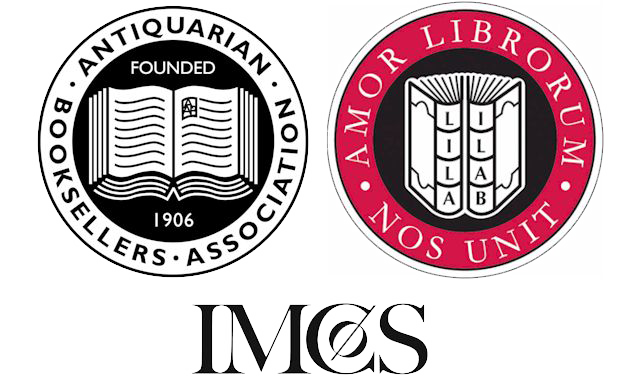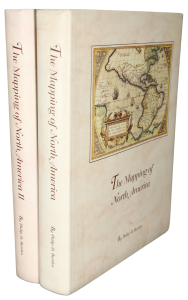Rare Maps and Prints
- World & Celestial
- North America
- West Indies, South & Central America
- British Isles
- British Isles
- English counties
- Large-scale
- Bedfordshire
- Berkshire
- Buckinghamshire
- Cambridgeshire
- Cheshire
- Cornwall
- Cumberland
- Derbyshire
- Devon
- Dorset
- Durham
- Essex
- Gloucestershire
- Hampshire
- Herefordshire
- Hertfordshire
- Huntingdonshire
- Islands
- Kent
- Lancashire
- Leicestershire
- Lincolnshire
- Middlesex
- Norfolk
- Northamptonshire
- Northumberland
- Nottinghamshire
- Oxfordshire
- Rutland
- Shropshire
- Somerset
- Staffordshire
- Suffolk
- Surrey
- Sussex
- Warwickshire
- Westmoreland
- Wiltshire
- Worcestershire
- Yorkshire
- Wales
- Scotland
- Ireland
- Western Europe
- Eastern Europe
- Middle East
- Africa
- Asia
- Australasia & Pacific
- Decorative Prints
- Title Pages
Mr. Philip D. Burden
P.O. Box 863,
Chalfont St. Giles, Bucks HP6 9HD,
UNITED KINGDOM
Tel: +44 (0) 1494 76 33 13
Email: enquiries@caburden.com
The original manuscript submission for the annual Chancellor’s Prize for Latin Verse at the University of Oxford, one of the most prestigious and long established contests of its kind. It was submitted in 1780 by Richard Colley Wesley, 1st Marquess Wellesley, for which he was awarded first place in the competition. It is an elegy on the death of Captain James Cook (1728 – 1779), the greatest explorer of the 18th century. Composed in an elegant presentation hand, the elegy, written in Latin, with footnotes in English, celebrates the life and achievements of Cook, who illuminated the Pacific world to western eyes.
The last voyage of Captain James Cook (1728-79) was an attempt to locate a North-West Passage from Europe to the Pacific. Following one unsuccessful season of exploration in these waters, Cook retreated to Hawaii to spend the winter months. The death of Cook at Kealakekua Bay on 14 February 1779 is arguably one of the most famous of an explorer.
In this modern age, it is easy to forget how long it took for news of such events to reach home. Cook died in February 1779 yet the news did not reach England until 10 January 1780, eleven months later. His own father, James Cook Senior, died in April 1779 without his son knowing of the loss. The momentous news travelled a circuitous route. Charles Clerke (1741-79) took over as acting Captain and after recovering some of Cook’s remains and burying them at sea 21 February, he decided to continue with the purpose of the voyage. An experienced naval officer, Clerke had served on John Byron’s circumnavigation 1764-66. He had also accompanied Cook on his first two voyages and was serving as commander of the Discovery on the third. After exploring other Hawaiian Islands for the remaining winter months, Clerke left to explore the North-West coast of North America. On the way, they called at Kamchatka, Russia, where they were welcomed by Governor Magnus von Behm. In June, Behm was to leave for St. Petersburg and Clerke entrusted him with letters and documents to be sent to England. Amongst these was a letter dated 8 June for Sir Philip Stephens, Cook’s supporter and Secretary of the Admiralty informing him of the death of Cook. Thus the news travelled by horse, riverboat and quite possibly by dog sledge back to St. Petersburg to be forwarded onto London where it arrived on 10 January 1780. That day, the Earl of Sandwich wrote to Joseph Banks ‘What is uppermost in our mind allways (sic) must come out first, Poor Captain Cooke is no more, he was massacred with some of his people by the natives of an Island …’. The following day, 11 January 1780, the news was in print for the first time in the ‘London Gazette’.
Therefore, although news of Cook’s death reached England in January 1780, Cook’s surviving party did not return home for another nine months. As such, Wellesley did not know the precise circumstances of Cook’s demise when he wrote his submission. It is a fascinating original artefact testifying to Cook’s contemporary celebrity, written by a young man who was to become one of Britain’s leading statesmen. Moreover, the manuscript footnotes memorialise a number of contemporary observations (made by Wellesley?) regarding Cook’s standing as an explorer, the ongoing search for the Northwest Passage, the Cape of Good Hope, Tahiti, instructions from the Empress of Russia for an hospitable welcome to Cook and mention that the French King decreed that Cook not be molested by French ships.
[With] A rare privately published collection of Wellesley’s reminiscences and writings, copies of which Wellesley circulated amongst his close friends in the two years before his death. The present copy is from the second edition of 1841, the first being dated from the year previous. The printed version of the manuscript elegy above, ‘Primitiae et Reliquiae In Obitum viri eximiii et celeberrimi navigatoris Jacobi Cook’, can be found on pages 53 to 58. The present example features a hand-written dedication by Wellesley to Francis Egerton, 1st Earl of Ellesmere (1800 – 1857), who served as Chief Secretary for Ireland (1828 – 1830). The inscription reads: “to the Right Honble Lord Francis Egerton with sincere respect & regard, Wellesley, Kingston House 7th March 1842”.
Richard Colley Wesley [1760-1842], later the 1st Marquess Wellesley, was born into a noble Anglo-Irish family. He entered Christ College, Oxford in 1778, but left before taking a degree in 1781, due to the death of his father. He quickly rose to prominence in British official circles, serving as Governor-General of India (1797-1805), Foreign Secretary (1809-12) and Lord Lieutenant of Ireland 1824-27 and 1833-34. Beddie 2477; Dobell, ‘Books Printed for Private Collection, p. 190; Martin, ‘Privately Printed Books’, p. 489.
[Contemporary Elegy on Captain Cook's Death]
SOLD








